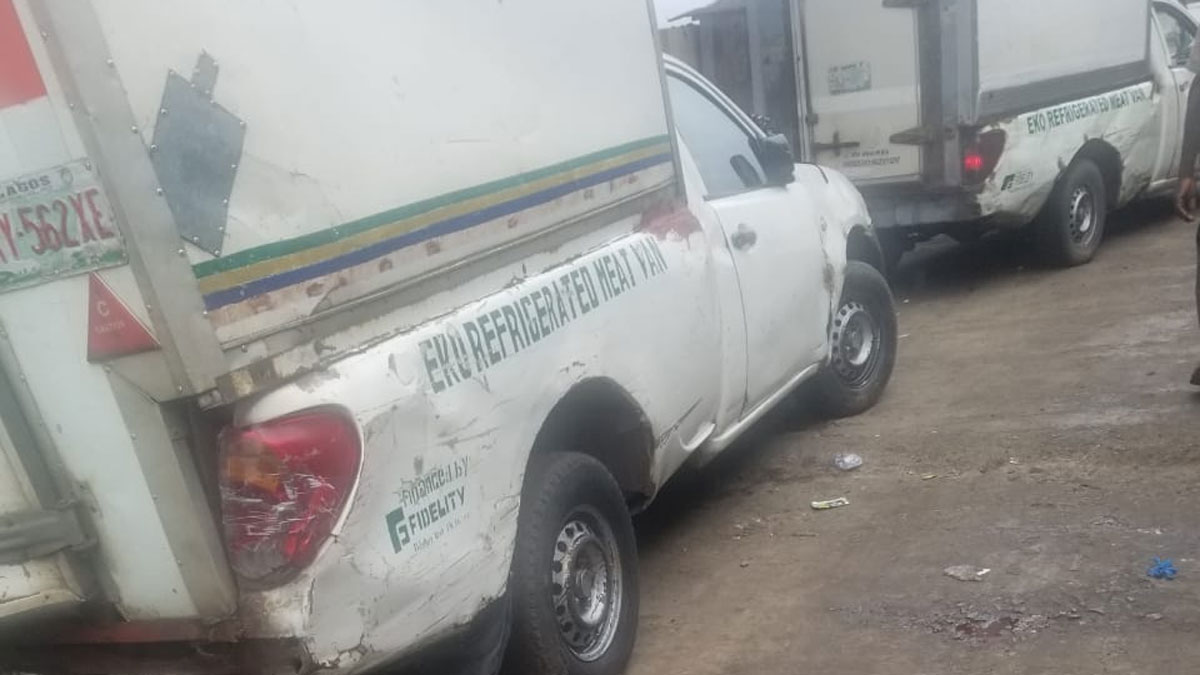
Urge check on illicit sales of dead animals, unethical practices
Lagos residents have expressed concerns over the deplorable state of Oko-Oba abattoir located in Agege Local Council of the state.
The concerns, they said, stemmed from the fact that in about 8,000 cattle consumed on a daily basis in Lagos, about 30 per cent of them are slaughtered at the Oko Oba Agege abattoir, whose environment is deplorable, thereby putting consumer’s health at a high risk.
The slaughter slab, which sits on a large expanse of elevated cemented floor, is also in a mess with blood and piles of animal dung, some of which found their way into the adjoining gutters.
A resident, Tunde Kosoko, said the sight of faeces littering the abattoir, indiscriminate waste disposal, unethical meat slaughtering processes and sales pose grave concerns to the citizens.
He stressed that the livestock sellers only care about profits without considering the health of buyers.
According to him, meat consumers, who know the deplorable state of the abattoir, are not sure of healthiness or otherwise of what they are consuming .
Kosoko said: “Issues of faeces and waste is inevitable, although the management has tried to control its disposal, it cannot entirely be curtailed.”
An operator, Maroof Ajayi also expressed concerns over sale of dead animals at abattoirs, stressing that the large number of butchers at the abattoir affects the ability of the management to catch those engaging in illicit sales of dead animals.
He said: “Once an animal is dead, it is supposed to be thrown away or buried. If the animal is going to die the following day, it would be slaughtered immediately to save cost. Such animals are not slaughtered in advanced countries, but here, the butcher has paid for the animal. Where is he going to get the money from if the animal dies? There is no insurance.’’
Another point of concern was in the transportation of meat from the abattoir. Many operators are not patronising Eko refrigerated meat vans, provided by the state government.
While the refrigerated meat vans are sitting idle, waiting to be hired, large chunks of meat are being transported on motorcycles in a most unhygienic manner.
It is not uncommon to see motorcyclists hauling bloodied sacks of meat portions making their way out of the abattoir.
On the meat vans, a government official, said the Task Force whose duty it is to ensure that the meat vans are used to transport meat are the ones aiding the operators to flout the order by collecting money from them.
The official, who spoke in confidence, said, any attempt to stop the practice would only generate more problems other than solving it.
‘’ When the refrigerated meat vans were brought, it was to ensure that nobody puts anything inside their car or carries it on their head. Weeks later, things went back to the old system. You see people putting meat inside the car or carrying it on their heads, when the Task Force catches them, they bribe their way out,” he said.
But, a private abattoir operator, Salau Yeruwa, identified inadequate power supply as a major challenge for meat sellers. He said the high cost of petrol and diesel is affecting their operation.
Yeruwa also lamented that many Nigerians are more interested in the cost than the quality of the meat they buy.
According to him, many of the meat from the public abattoirs are not hygenic and fit for human consumption.
MEANWHILE, the Management of the abattoir has debunked claims that butchers sell diseased or dead animals to citizens.
A management staff said butchers are not allowed by the law of the state to engage in illicit sales of dead animals, which is also unethical, according to Islamic practices.
He explained that butchers do not have insurance over dead animals, therefore they bear the loss themselves. He said: ‘’They are not allowed to process or sell any dead animal for human consumption, it’s even haram to their religion, so they would not do that. Even if they bought an animal for one million plus and it dies without being slaughtered, that’s the end of the animal, they don’t worry on that. It’s against their religion so that’s an assurance that they would never process dead animal.’’
The management also explained that the ministry is short of manpower to inspect the health of the livestock before purchase and sales which is a major reason people engage in sales of unhealthy meats.
“There are veterinary doctors at the slab, although there are not many. Imagine in this whole abattoir, there are only eight of us and then some of us are on duty at Alausa, some are on other assignments.
“So, those that will be on duty will be either four or five. It’s not that we are not there, we are there; it’s just that the manpower is not enough. If you (reporter) have power, you can tell them to employ more people.”
Contacted, Lagos State Directorate of Veterinary Services confirmed the situation and assured that the government has taken measures to ensure that rigorous inspection takes place before animals are slaughtered knowing that the abattoir supplies about 60 per cent of the state.
A director of the services stated that the state governor, Mr Babajide Sanwo-Olu is working to employ more veterinary doctors. He said: ‘’At least 20 veterinary doctors and 10 animal health technologists are being employed and they will soon resume.”



![[FILES] A picture shows the Argentinian flag. (Photo by DANIEL LEAL-OLIVAS / AFP)](https://cdn.guardian.ng/wp-content/uploads/2020/11/Argentina-.jpg)


